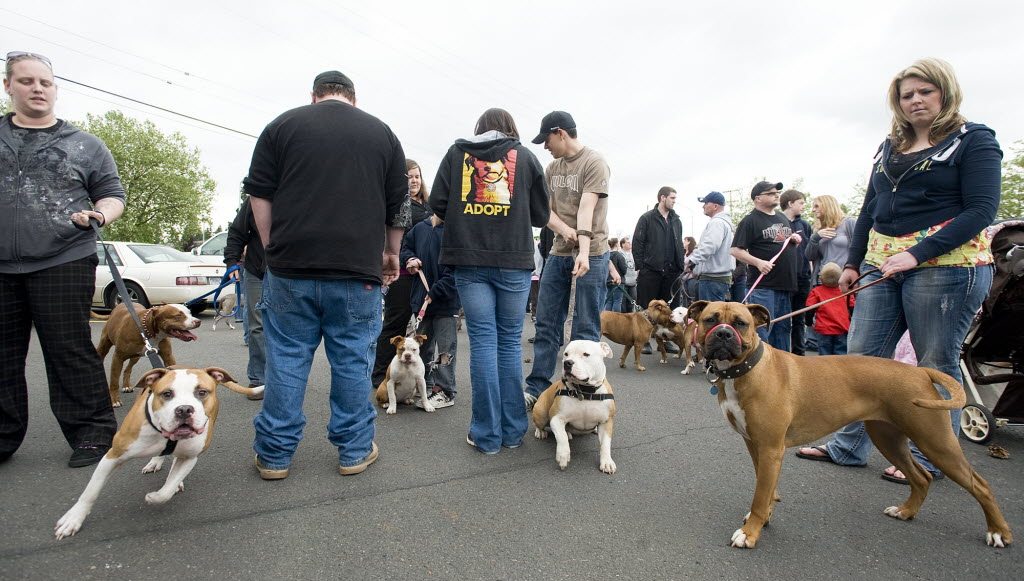Vancouver dogs: One bad bite, and you could be out.
Following a severe attack on a 9-year-old boy near downtown this year and coming on the heels of a now-dead discussion on banning pit bulls, the Vancouver City Council said Monday they may be in favor of a no-tolerance policy on keeping dangerous dogs within the city limits.
The policy wouldn’t ban pups who, unprovoked, make a minor nip that barely breaks the skin. Those dogs would be named “potentially dangerous.” But if that dog does it again, it could be labeled a dangerous dog — and would no longer be allowed in Vancouver. Or, if a dog with no previous history of aggression, unprovoked, inflicts severe injury — broken bones or disfiguring lacerations that need multiple sutures or plastic surgery — or kills a domestic animal or livestock, it too could be deemed a dangerous dog and could no longer be kept in Vancouver.
The policy the city council discussed would make Vancouver’s law stricter than those in unincorporated Clark County.
County Animal Control staff and the City Attorney’s Office had come to the meeting Monday to recommend that Vancouver make its rules the same as the county’s, to avoid confusion. The city hasn’t thoroughly updated its animal laws since the mid-1980s.
In the county, a dog that makes a minor bite unprovoked is given a “potentially dangerous dog” label, and if it offends again, it becomes a “dangerous dog.” Dogs that aggressively chase, charge or commit other aggressive behavior can also be named potentially dangerous. Dogs that inflict serious injury or kill another animal, even on the first time, become dangerous dogs.
Owners of dangerous dogs must do a number of things to ensure their dog has limited contact with the public thereafter, including installing a six-sided enclosure (one with a top, bottom and sides) and signage; and obtaining a $250,000 surety bond or liability insurance, as well as a microchip and inspections. Licensing also costs $300 initially and $100 a year after that. If the dog leaves the house, it must be muzzled at all times. If a dog somehow bites again, it is euthanized. All incidents are subject to an appeal by owners.
The law is so onerous, it effectively keeps most people from hanging on to their dogs, County Animal Control Manager Paul Scarpelli said.
“When it reaches this level, people have a very, very big decision on their hands,” Scarpelli said. “It’s a very challenging part of a dog owner’s life at this point.”
As a result, there are only about five or six dogs in Clark County deemed dangerous that have remained with their owners, Animal Control Officer Teri Wilson said.
The city council agreed on adopting a potentially dangerous dog code, which it currently does not have. But several said they didn’t understand why a dog that is dangerous should be kept around.
“What happens if I own a dog and it mauls a child, I turn around, meet all this criteria, and it happens again?” Councilor Bart Hansen asked, adding he’d feel responsible if the council enacted a law allowing dangerous dogs and that happened.
Councilor Jeanne Harris said she’s aware that people become attached to their animals as if they were members of the family.
“But there’s never an excuse for a dog to viciously bite anything,” she said. “I would like us to consider a first-strike-you’re-out policy. Why would anyone want a dog who has bitten someone unprovoked, especially to the point of plastic surgery?”
The city council appeared to be unanimous in their desire to rid Vancouver of any dog found guilty of an unprovoked serious bite or killing an animal; Mayor Tim Leavitt was absent from the workshop. However, the city council said it will also weigh testimony from the public before it votes on a new law. The ordinance is set for a first reading on Sept. 12, with a public hearing and potential vote by the council on Sept. 19.
Andrea Damewood: 360-735-4542 or andrea.damewood@columbian.com or www.facebook.com/reporterdamewood or www.twitter.com/col_cityhall



